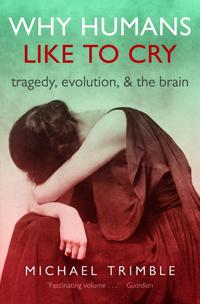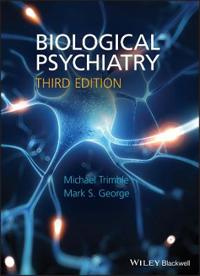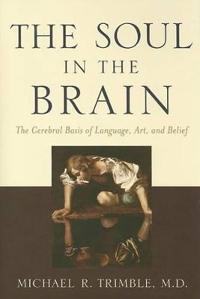Why Humans Like to Cry (Pocket)
avMichael Trimble
ISBN: 9780198713494 - UTGIVEN: 2014-10Human beings are the only species to have evolved the trait of emotional crying. We weep at tragedies in our lives and in those of others - remarkably even when they are fictional characters in film, opera, music, novels, and theatre. Why have we developed art forms - most powerfully, music - which [...]
Anatomy Of Neuropsychiatry (Inbunden)
avLennart Heimer, Michael R. Trimble, Gary Van Hoesen, Daniel Scott Zahm
ISBN: 9780123742391 - UTGIVEN: 2007-11-29Presents the anatomical systems that take part in the scientific and clinical study of emotional functions and neuropsychiatric disorders. This book intends to help the reader develop an understanding of the gross anatomical organization of the human forebrain. It also includes a DVD illustrating di[...]
Why Humans Like To Cry (Inbunden)
avMichael R. Trimble
ISBN: 9780199693184 - UTGIVEN: 2012-11-01Human beings are the only species to have evolved the trait of emotional crying. We even create music, fiction, film, and theatre - 'Tragedy' - to encourage crying. Michael Trimble looks at the physiology and evolution of this unique human behaviour, exploring its links with language, consciousness,[...]
Biological Psychiatry (Inbunden)
avMichael R. Trimble, Mark S. George
ISBN: 9780470688946 - UTGIVEN: 201010Biological psychiatry has dominated psychiatric thinking for the past 40 years, but the knowledge base of the discipline has increased substantially more recently, particularly with advances in genetics and neuroimaging. The third edition of Biological Psychiatry has been thoroughly updated taking[...]
The Soul in the Brain (Inbunden)
avMichael R. Trimble
ISBN: 9780801884818 - UTGIVEN: 200706In this provocative study, Michael R. Trimble, M.D., tackles the interrelationship between brain function, language, art-especially music and poetry-and religion. By examining the breakdown of language in several neuropsychiatric disorders, neuroscientists have identified brain circuits that are inv[...]







